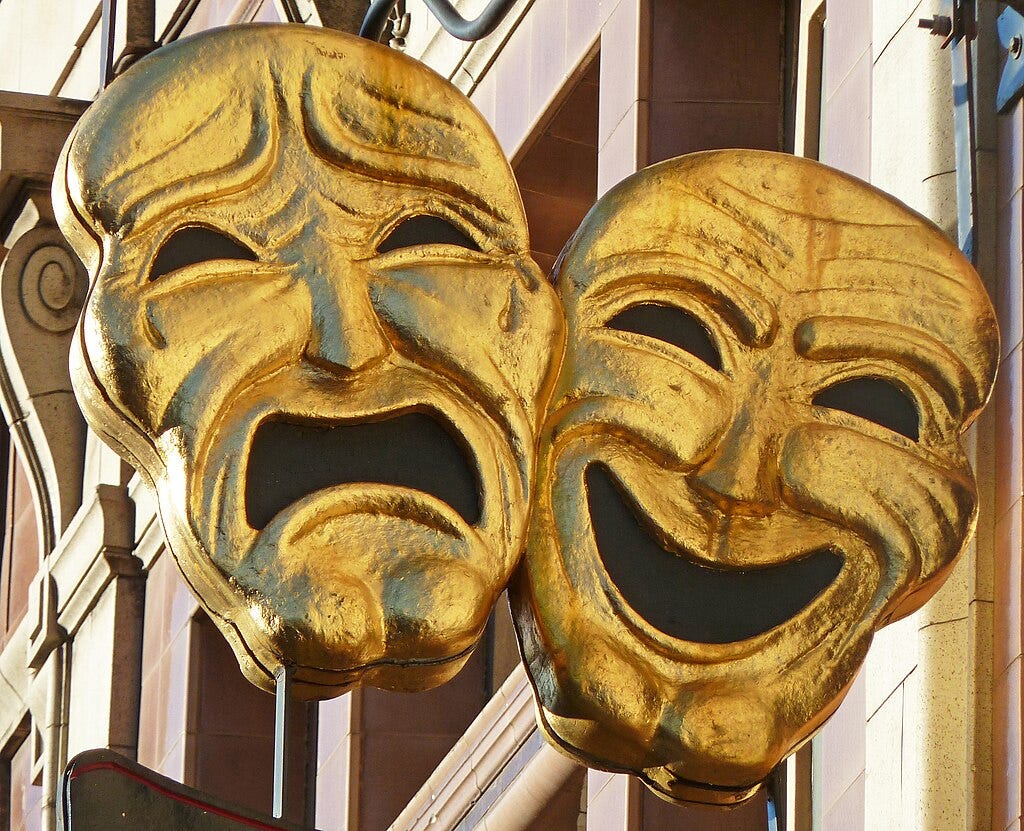Spence!
I’m reminded of a joke.
Years ago — in 2006, to be exact — in one of their many attempts to undermine conservative broadcaster Rush Limbaugh, the corporate media made a big to-do about some Viagra found in Limbaugh’s luggage at an airport. In a gracious and hilarious moment that cut the ground out from under his detractors, Limbaugh remarked that he had been given the medicine after he told his doctor he was worried about “the next election.”
It seems these days that no matter what we’re talking about — even God — the subject always returns to the next election. And since there’s no point in trying to resist it, we may as well point out that the humor of it and the seriousness of it provide a perfect example of how “To live in the present as though it were history, and in sorrow as though it were already glory, must surely be the nature of the game.”
The other day, Nico Grant of the New York Times contacted your poor old Dad — along with poor old Ben Shapiro and rich old Elon Musk — with a letter clearly meant to intimidate us with threats of censorship. I laughed. My reaction to being intimidated is much the same as Lee Marvin’s reaction to getting shot repeatedly in the chest in the movie Point Blank: It annoys me but it’s not going to slow me down.
But, of course, it’s also not funny. A major American newspaper trying to silence those who disagree with them? It’s sad and despicable. Nico would be crippled with shame if he had not steeped himself in an ideology that makes bad seem good to him and wrong right.
When I was young and had the false wisdom of youth, I used to think, “Nothing changes. It’s all as it ever was.” As I matured, I began to understand that every change for good or ill is woven ineradicably into the fabric of time. Then, when I got old, I began to see that both insights were true at once. Thus, if life is a tragedy, it’s a very funny one, and if it’s a comedy, it’s the saddest ever. We must live, as it were, with both masks on, laughing and sorrowing simultaneously.
Which is why I love the arts, and why I approach the gospels as works of art, though historical. Many letters ago (#82 and #83), we made reference to Stephen Sondheim’s musical Sunday in the Park with George with its marvelous ode to artistic creation Finishing the Hat. But there’s another song in which the figures in George Seurat’s 1886 masterpiece A Sunday Afternoon on the Island of La Grande Jatte come to life and sing about their experience.
It’s hot up here! It’s hot and it’s monotonous!
The lyric always gets a laugh. Burdened with their own tedious misery, the characters miss the glorious beauty of the greater design.
Which reminds me of the next election…
Love, Dad





Totally unrelated but I just finished The Great Good Thing. Excellent sir. Bravo. It almost made me wish I hadn’t been born into a Christian family so that I could experience such a wonderful transformation.
You speak about getting sin out of the way, not to purify yourself completely, but to allow for the clear pursuit of meaning.
And in some ways, I see that ethos spreading from the daily wire out into conservative politics at large.
When I was younger I never would’ve expected to see love, unity, and family at a Republican nominee’s presidential rally, but here we are; and I think it’s the biggest reason people have the courage to unburden themselves from what has been and rethink their vote.
Conservatism is conserving now and it shows.